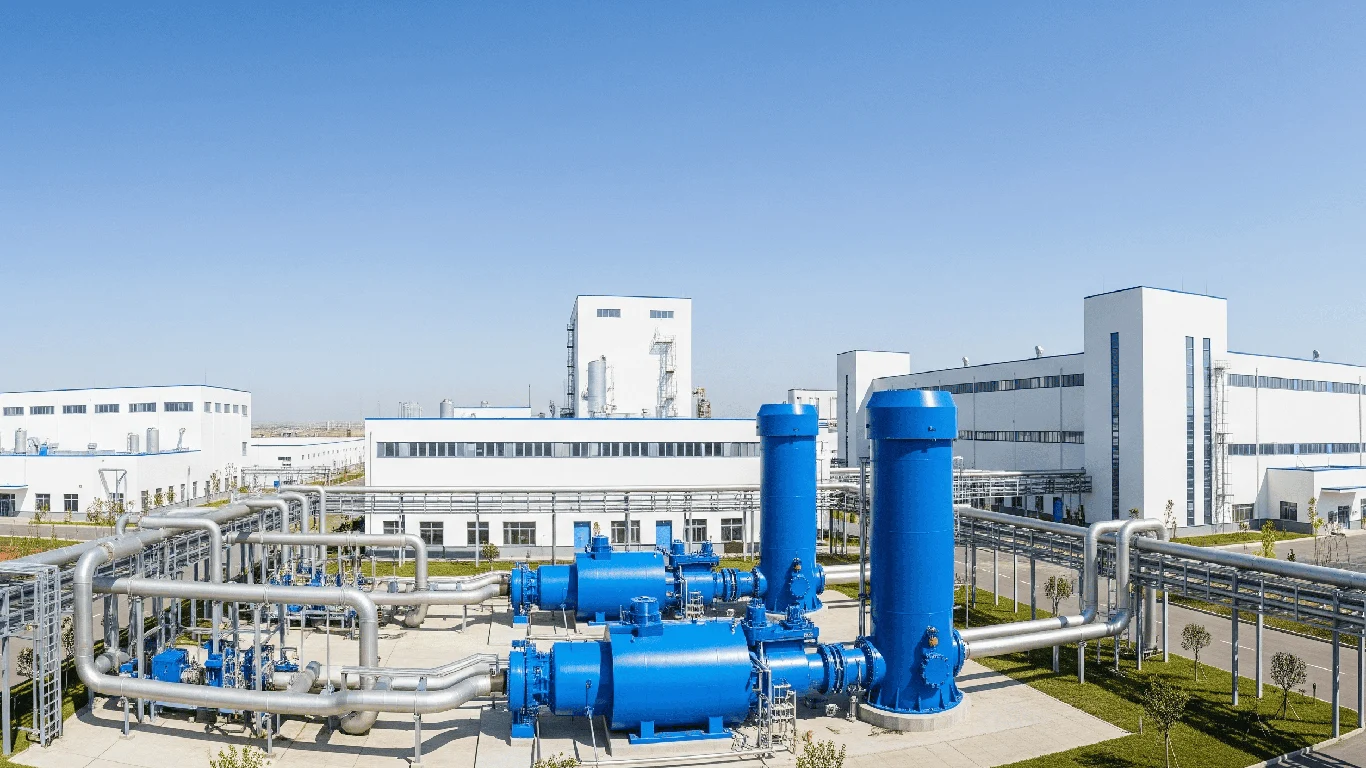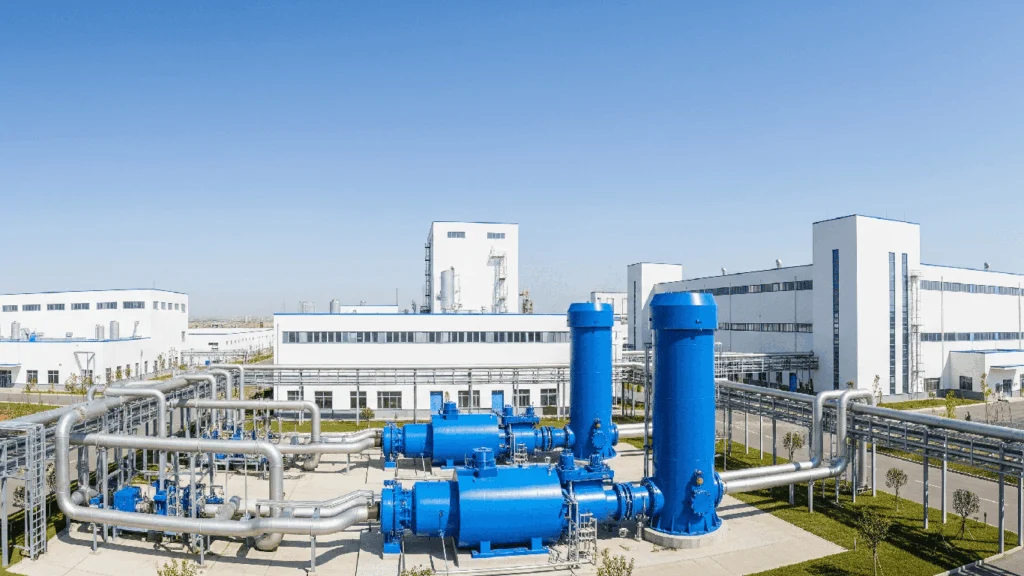
Centrifugal Pumps – The Water Pumping Solution for Industrial Applications

เป็นเพียงภาพประกอบบทความเท่านั้น
Centrifugal Pumps
Centrifugal pumps are among the most widely used pumps in the industrial sector. They are capable of generating high pressure efficiently and are designed to continuously transport large volumes of water or liquids over long periods of time. This type of pump is particularly suitable for systems requiring stable pressure, such as boiler feed, cooling systems, piping systems, and general factory applications.
What are Centrifugal Pumps?
Centrifugal pumps operate based on the principle of centrifugal force. The impeller rotates to accelerate the liquid outward toward the edge of the impeller, generating pressure and continuous flow. This simple yet highly effective principle makes centrifugal pumps suitable for applications involving clean water, industrial process water, and even chemical liquids.
Key Advantages of Centrifugal Pumps
- Continuous high pressure generation: Multi-stage impeller design enables higher pressure as required.
- Handles large volumes of water: Ideal for factories requiring 24/7 water supply.
- Durable construction: Made from cast iron, stainless steel, or duplex steel.
- Easy maintenance: Spare parts and accessories are readily available in the market.
- Automation ready: Compatible with inverters, pressure sensors, and flow meters.
Industrial Applications of Centrifugal Pumps
- Boiler Feed: Requires high pressure and consistent water delivery, making multi-stage centrifugal pumps the primary choice.
- Cooling Systems & Cooling Towers: Used for circulating water in HVAC, chillers, and industrial cooling applications.
- Piping Systems: Multi-stage centrifugal pumps ensure stable pressure across pipelines, even when multiple points draw water simultaneously.
- Process Water in Manufacturing: Suitable for power plants, food & beverage factories, and chemical plants where continuous large water volumes are required.
Centrifugal Pumps and Piping Systems
For optimal efficiency, centrifugal pumps must be installed alongside properly designed piping systems and accessories, such as:
- Pipes: Sized according to flow rate and pump discharge pressure.
- Valves: Gate valves, check valves, and control valves to manage and prevent backflow.
- Flanges: Safe connections between pump and pipes.
- Pressure gauges and flow meters: To monitor performance.
- Control systems: Inverters, PLCs, and pressure sensors for automated operation.
Benefits of Well-Designed Pump & Piping Systems
- Minimized pressure loss: Proper pipe sizing and materials ensure full pressure delivery.
- Energy savings: Correct piping design keeps pumps operating at their Best Efficiency Point (BEP).
- Extended pump lifespan: Reduces overload and vibration issues.
- Operational safety: Check valves and control devices ensure safe operation.
Industries Commonly Using Centrifugal Pumps
- Power plants: Boiler feed and cooling water systems.
- Food & beverage industry: Production processes, CIP systems, cleaning systems.
- Chemical and petrochemical industry: Handling high-pressure and chemical liquids.
- Water treatment & environmental applications: Clean water and wastewater transfer.
- High-rise buildings & large factories: Main water supply and firefighting systems.
Conclusion
Centrifugal pumps (multi-stage designs in particular) are the backbone of industrial applications requiring high pressure, large flow rates, and continuous operation. When integrated with a properly designed piping system, they deliver maximum efficiency, energy savings, and safety.
Whether in boiler feed, cooling systems, piping networks, or manufacturing processes, centrifugal pumps remain one of the most reliable and cost-effective solutions for today’s industrial sector.
For industrial pump solutions
063-393-5088
siameastsolutions.com





